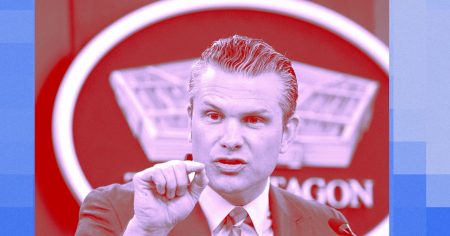Kenneth Dettman, CPA, is the CEO of EZ-ERC and is considered a pioneer in the Employee Retention Credit service industry.
I adore my wife, Casey, for many reasons, including our ability to have great conversations over meals. There was one dinner in the spring of 2020 that involved a particular moment of brilliance.
Per tradition, we were catching each other up on our daily tribulations. As an accountant and partner at a tax firm, I was following the release of regulatory guidance around the CARES Act—a $2.2 trillion economic stimulus bill passed in response to the economic fallout of the Covid-19 pandemic—to ensure I was maximizing this opportunity for my clients. I was particularly interested in the Employee Retention Credit (ERC), which was established to assist businesses that suffered economic impact, financial losses or operational disruption during the pandemic. Due to misconceptions and a lack of guidance, I found that many employers were missing out on significant tax credits that could be a major lifeline for them, and was communicating this to Casey.
An ever-enthusiastic altruist, my wife decided at that moment that we needed to find a way to dissipate the confusion and help employers of small- and medium-sized businesses receive their credits, and, in that moment, our company was born. In the beginning, we knew we were starting a business centered around a program that was only available until the spring of 2025. However, just because the expiration was inevitable, we felt that didn’t mean we should avoid starting the business, especially when the service fills an immediate and essential need. It meant that we needed to plan ahead, beyond the ERC, to pivot and expand service offerings. Simply put, your business does not have to die when a program, service or need ends, and—if you plan for it—you can continue to serve your existing client base.
Here are my top tips for building and growing an adaptable business.
Be at the front of the market.
Be proactive with your business idea rather than reactive. If you see a need, jump on it. The ERC caught on like wildfire the same way that the Paycheck Protection Program did, so being an early adopter was better than being late to the game. Because we started our company shortly after the ERC was released, we boast a full 2 years of experience, which not many other organizations can say.
Set out to be the best.
Being an early adopter doesn’t necessitate sacrificing process for speed; in fact, it implies quite the opposite. By embracing early adoption, you gain the advantage of time and the opportunity to establish robust processes and deliver an exceptional client experience. Building our company over the past few years has enabled us to refine our processes, laying a strong foundation that empowers us to diversify and provide additional service lines tailored to our clients’ evolving requirements.
Plan your pivot early.
To ensure a successful transition and optimize resource allocation, it’s crucial to begin planning your pivot and redeploying resources earlier than you might anticipate. Allowing yourself ample time and runway to refine and perfect the pivot strategy will significantly enhance your chances of success. While redeploying resources to establish new service lines might initially impact your bottom line, in my experience, it’s a wise and prudent move that ensures long-term sustainability. For us, the possibility of the ERC being canceled at any given moment further emphasizes the need to plan proactively.
Not only does this demonstrate your ability to adapt and evolve beyond a single program, but it also communicates to current clients that your commitment extends far beyond short-term endeavors, instilling confidence in your organization’s long-term capabilities.
Maintain integrity in everything you do.
It’s often been said that integrity is how we act when no one is watching—the same is true with business. A culture of integrity starts with its founders. There may be many chances to do things the quick way or the easy way, but we almost always know deep down what the right way is. In the ERC industry, which became ripe with bad actors, our company had to make a name for itself based on the integrity of its work product, and that starts with fostering a workplace that does the right thing and does not take shortcuts or compromises integrity for any reason.
Hire proactively.
Along with embracing remote hiring, hire before your company has the need (or in anticipation of the need itself), especially if you spot top talent. Even if there isn’t an obvious role for the individual, good talent can be so hard to find and retain. While this might sound counterintuitive, hiring early and opportunistically can be the key to growth. Bringing in new team members before your current employees are over capacity can drive productivity and innovation exponentially.
Treat your employees well.
Regardless of your hiring practices, proactive or not, you must treat employees well to build a positive company culture and foster loyalty. Gone are the days of pizza parties and casual Fridays. Those are trivial rewards. You need to be willing to pay above market for great talent. Avoid squeezing your employees for extra capacity or extra work. Treat employees as people, not as machines, exemplify empathy when issues arise and give employees the opportunity for growth.
Building an adaptable business model that extends beyond a single program or time of intense need starts from day one. Listening to your client’s evolving needs, planning your pivot early and focusing on being proactive rather than reactive can be the difference between a business that adapts and thrives and one that fails. Let my experiences and these tips serve as a guide to building success in a rapidly evolving business landscape. Best of luck!
Forbes Business Council is the foremost growth and networking organization for business owners and leaders. Do I qualify?
Read the full article here










